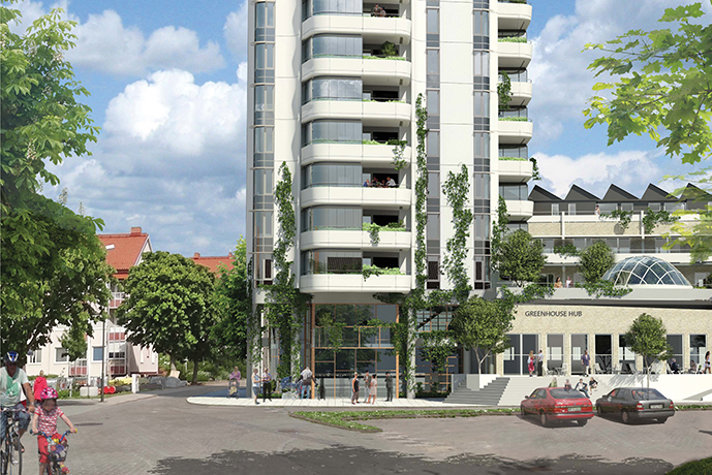Innovation partnership programmes – mobilising new ways to meet societal challenges
Published
The Government is launching five innovation partnership programmes to help meet a range of the societal challenges that Sweden is facing. These programmes involve new ways of travelling, residing, doing business, living, communicating, and using and preserving the world’s resources and ecosystems. Partnership between public actors, business and academia creates new, innovative solutions that strengthen competitiveness, contribute to sustainable development and create more jobs.
Three identified societal challenges
Three horizontal societal challenges identified by the National Innovation Council as central for Swedish transition to a more climate-friendly world are used as the starting point. These are digitalisation, life sciences and environmental and climate technology. All partnership programmes address these challenges.
From a global perspective, Sweden is a small country, dependent on cooperation with others, and therefore partnership is a well-known method for mobilising resources and solving common challenges. There are already many good examples of partnership in the various areas of these programmes. In addition to seeking more new constructive partnership, the partnership programmes will structure and highlight work already being done to give us the best possible effect of innovations for the future.
The innovation partnership programmes
1. The next generation's travel and transport
Sweden needs a more transport-efficient society, where transport is used in a smarter way and uses more resource-efficient vehicles. Test beds are a good method for demonstrating and commercialising new transport solutions. The partnership programme 'The next generation's travel and transport' includes all modes of transport and has an overarching perspective, in which all modes of transport work together to solve women's and men's travel and goods transport needs.
2. Smart cities
Smart cities use information and communication technologies to improve the quality, performance and interactivity of municipal services, reduce costs and resource consumption and improve contact between citizens and authorities.
3. Circular and bio-based economy
We must use a coherent approach to manage food supply, energy issues and the transition to a circular and bio-based economy. This means new ways of using the world's resources. Sustainable and non-toxic raw materials production is fundamental. The aim of the partnership programme 'Circular and bio-based economy' is to jointly mobilise innovation initiatives to ensure that the proportion of the bio-based economy grows, and promotes circular solutions.
4. Life sciences
We need to use Sweden's high level of knowledge and expertise with regard to development and production. We have high-quality health and medical care that covers everyone and a tradition of partnership that needs to increase to solve societal challenges concerning health. Partnership between health care, business and academia is needed for new innovative pharmaceuticals, health care methods and medical technology to benefit society, many of them with solutions that use digital technology. This will strengthen Sweden's global competitiveness and contribute to new jobs in life sciences companies, which stand for high-skilled employment opportunities and strong exports, and provide better health care.
5. A connected industry and new materials
Stimulating broad digitalisation of Swedish industry requires mobilisation in the form of cooperation between actors. Partnership must be strengthened between established industry, IT and telecom companies, service companies, innovative young companies at the forefront of digitalisation and various research environments to better help enhance Sweden's competitiveness. Connected industries and new materials are closely linked to the Government's re-industrialisation strategy 'Smart industry'.
Work on the partnership programmes
The partnership programmes have been made a priority by Prime Minister Stefan Löfven via the National Innovation Council. Minister for Enterprise and Innovation Mikael Damberg is responsible for coordinating the Government's partnership programmes.
The Swedish Agency for Innovation Systems has been specially tasked by the Government with assisting the work on the partnership programmes in 2016–2018.






 X
X